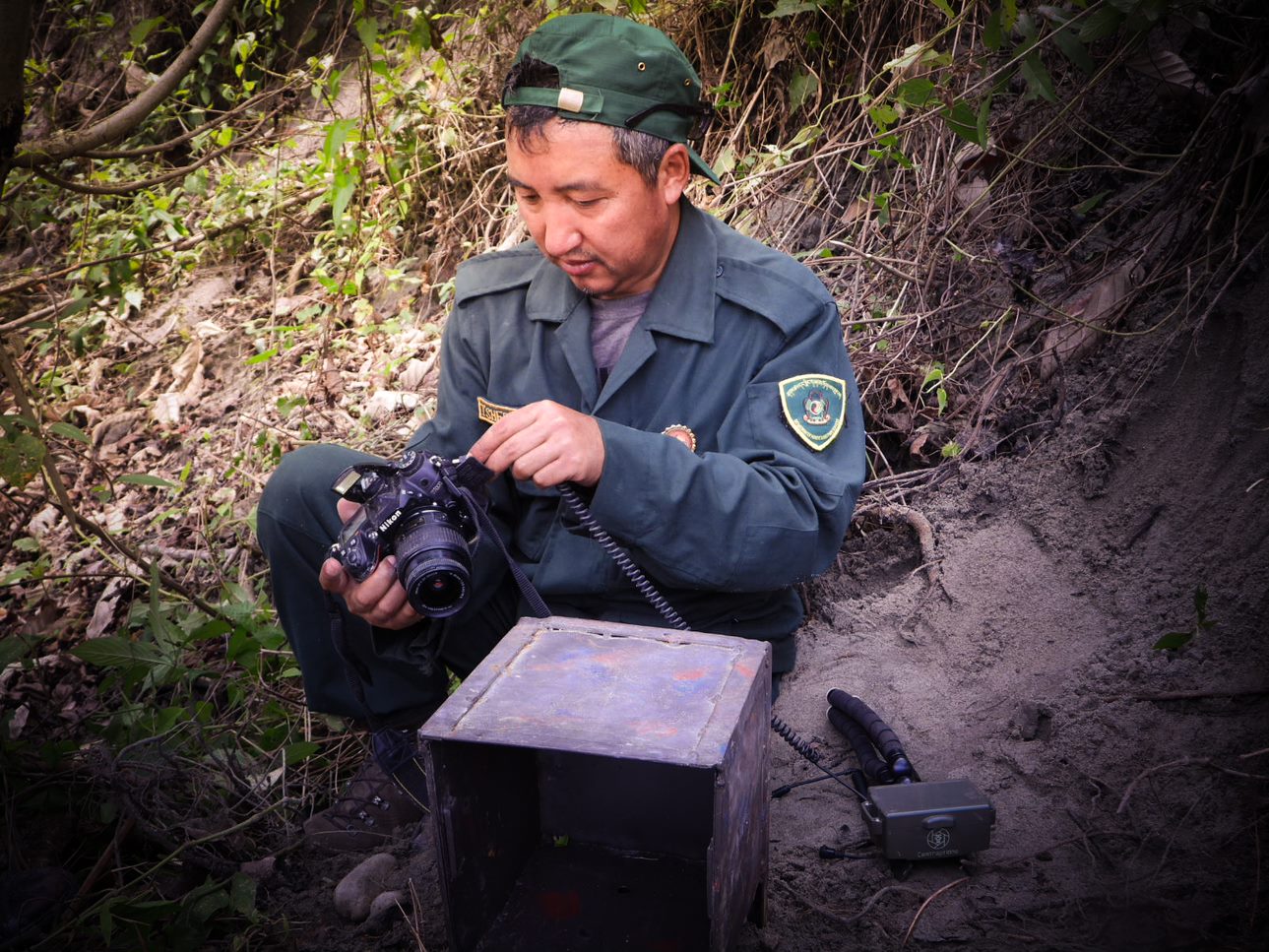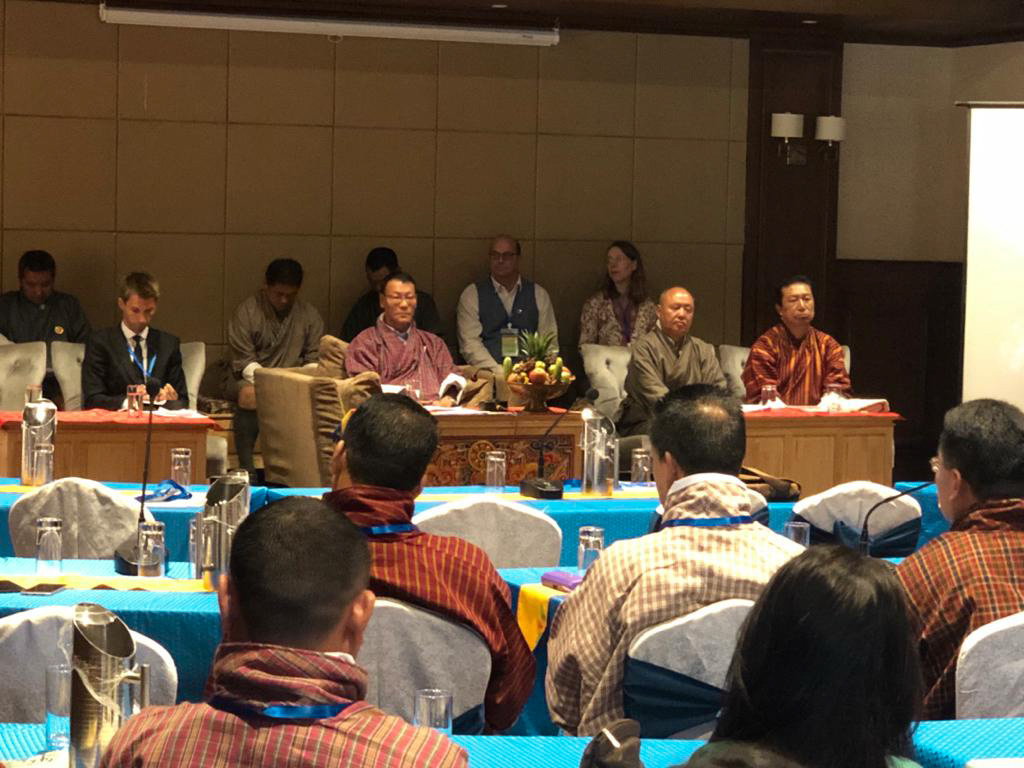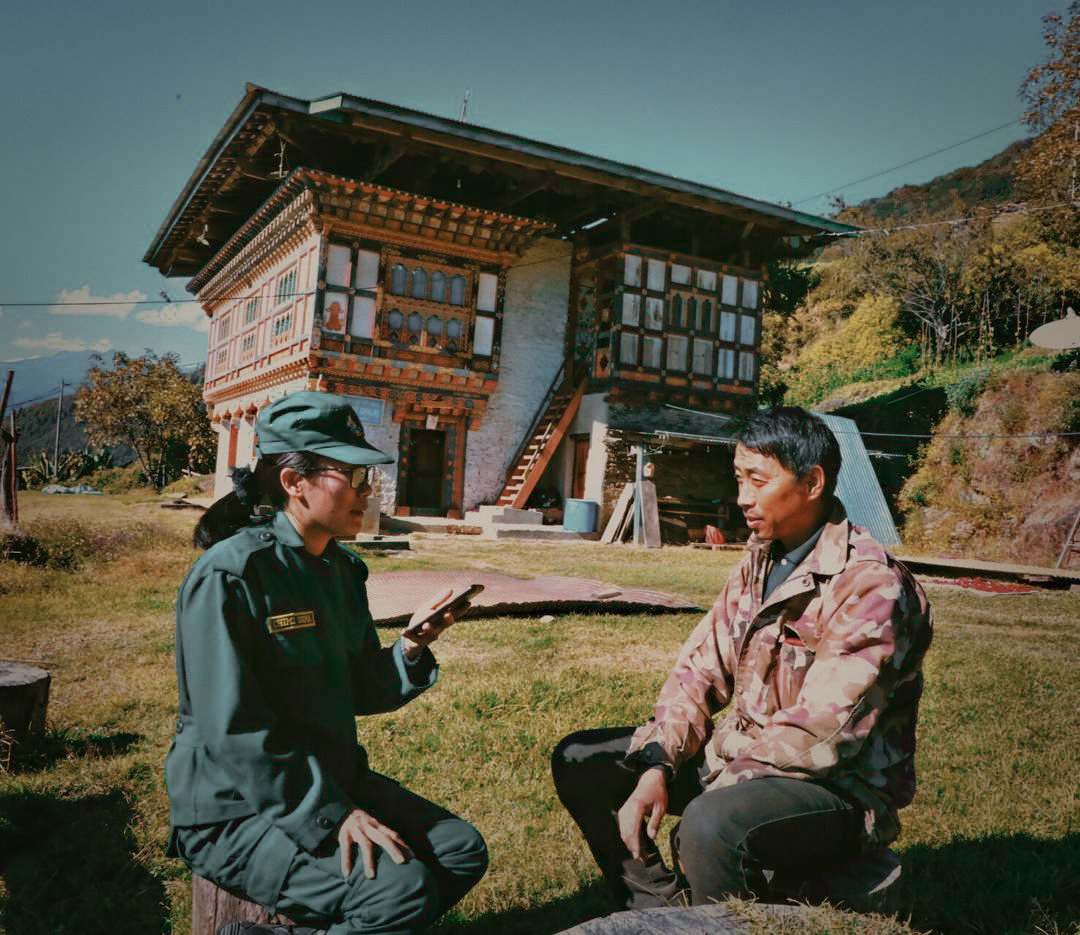Protecting the Royal Bengal Tiger in Bhutan
In Bhutan, Vanishing Treasures is working to enhance the understanding of climate change impacts on the Royal Bengal tiger and its habitats, and to address knowledge gaps. This new knowledge will be integrated into the management of tiger habitats and to promote climate-smart conservation practices. Vanishing Treasures is also supporting communities living in close proximity to tiger habitats by implementing ecosystem-based adaptation (EbA) on the ground to reduce impact and further pressure on tigers and their habitats.
Bhutan
Bhutan is a landlocked country in the Eastern Himalayas in South Asia. Thimphu, its capital and largest city, is situated in the west of the country.
Protected area network
The protected area network of Bhutan covers over 50% of the country and includes national parks, wildlife sanctuaries, a nature reserve and a number of corridors linking these all together.
Vanishing Treasures programme areas
There are two designated Vanishing Treasures programme areas. The first is in central Bhutan, in the district of Trongsa where human-wildlife conflict is high. The second area is to the east, in Trashigang district, where the impacts of climate change are severe and include more frequent forest fires and the drying up of water sources.
Tiger Sightings
Camera traps are used to record and monitor tiger movements within the country. Remote camera trap sightings of tigers in Bhutan are indicated by the red dots.
Disclaimer:
The designations employed and the presentation of material on any maps on this page do not imply the expression of any opinion whatsoever on the part of the Secretariat of the United Nations concerning the legal status of any country, territory, city or area or of its authorities, or concerning the delimitation of its frontiers or boundaries. The spatial data used for the production of the map is derived from external sources. Consequently, Good Cause Promotions is not liable for positioning inaccuracies, subsequent updates, errors or omissions of data.
Data Collection
In the Vanishing Treasures programme areas we use a combination of field surveys, GPS collaring of animals and remote camera trap monitoring to study the current distribution and population of tigers and their prey species as well as habitat productivity and human land use patterns. We also assess the vulnerability of communities to climate change and the level of human-wildlife conflicts.

Tempa Tshering, director of the Bhutan Tiger Centre is installing a camera trap. © Bhutan Tiger Centre

A Royal Bengal tiger caught on camera in Bhutan. © Bhutan Tiger Centre
Analysis
We combine the collected information with climate models to identify potential vulnerabilities under future climate scenarios as well as climate-driven shifts in habitat quality and productivity.
Policy Integration
We use the knowledge acquired through the programme to equip government officials and local partners with tools and methods to integrate climate-smart wildlife conservation into landscape planning and management.

National consultation meeting in Thimphu, Bhutan.
© UNEPImplementation of Pilot Solutions
Finally, we are working together with local communities, wildlife conservancies and protected area authorities to implement ecosystem-based solutions such as water provision and improve the ecological connectivity in the two designated Vanishing Treasures programme areas.
Further activities may include:
- restoring tiger habitats (mainly grasslands and pastures),
- installing small-scale bio-gas digesters to reduce forest destruction,
- providing low-voltage electric fencing for mitigating human tiger conflicts,
- developing Eco-tourism products.
The programme will also contribute to the creation of a training and education hub at the Bhutan Tiger Centre to raise awareness for the threats to the tigers‘ existence and the need to protect them.

Socio-economic survey with local communities assessing the impacts of climate change on biodiversity, the tiger and increased human-tiger-conflict, as perceived by the local communities. © Bhutan Tiger Centrе


